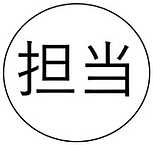Chowa
Responsibility and a Broken TV
Companies that say that “responsibility” is a core value often leave that platitude hanging. It’s never explained or shown how it’s practiced. Our story of the broken conference TV demonstrates how important shared responsibility is.
This piece is part of our Chōwa blog series.

Hoarding Responsibility Hurts Businesses
One of the nastiest business cultural practices is micromanagement. It hurts employee morale and productivity, AND it really hurts those doing the micromanaging. Most leaders who micromanage become a black hole, sucking tasks and authority away from their staff and onto their own task list. Suddenly the leader is a bottleneck for action on projects and for decision-making. Not only does this slow down work output (there are only so many working hours in a day, after all), but it also wears the leader down physically, mentally, and emotionally.
But when responsibilities are distributed and their boundaries respected through trust, the burden of those responsibilities is also shared. Everyone becomes more productive because they are not delayed or blocked by micromanagement. Coworkers collaborate to create a workplace built on the balance between trust and responsibility.
Inedo’s example of the broken conference TV highlights this well: If only those in charge had authority, a broken TV would spell disaster for the presenters. But it didn’t, because of Tantō.
Tantō: The Broken Conference TV
Back in 2018, two Inedo representatives went to represent us at a conference in San Francisco. (Remember, we are located in Berea, Ohio, so California is quite far away.) Our conference presentation and set-up revolved around a slideshow displayed on a TV on our table. Arriving in San Francisco and unpacking the conference boxes, our representatives (we’ll call them Jessie and Shayna) found the TV had broken during shipping. Cue the panicking? No!
Because of Chōwa, Inedoins know Tantō, their area of responsibility and accountability. All Inedoins are both delegates and delegators, making Tantō is a two-way street. We trust that others are handling their responsibilities as we each handle ours.
Because the greater context (Taikyoku) had been explained, Jessie and Shayna knew they had the authority to go to an electronics store for a replacement TV. Everyone understood that their decision would be supported and respected, so they didn’t waste time asking for permission or “what should we do?” They solved the problem, and the conference was a success. And their manager had only to focus on his own tasks, knowing that his staff had the situation covered.
Tantō still requires open communication: While everyone can “mind their own business” because of trust in the delegation process, coworkers should still keep each other “in the loop” to avoid information silos. Out of courtesy (and good Hōkoku), the representatives texted their manager to report what happened, but they knew that they would be trusted, because of Shintaku. And because of Kaizen, they were able to write up a plan for this contingency and for how to ensure the success of future conferences even if they had a broken TV.
The lesson of Tantō is one that can help all businesses: shared responsibility benefits everyone.
Get the Chōwa Book
Tantō is just one of the many elements of Inedo’s new cultural philosophy of Chōwa, or “natural balance.” We will be explaining the various elements of Chōwa here on our blog and on our social media (Twitter, Instagram, and LinkedIn). Subscribe to these channels and download your copy today to learn about Inedo’s unique cultural philosophy of Chōwa.
